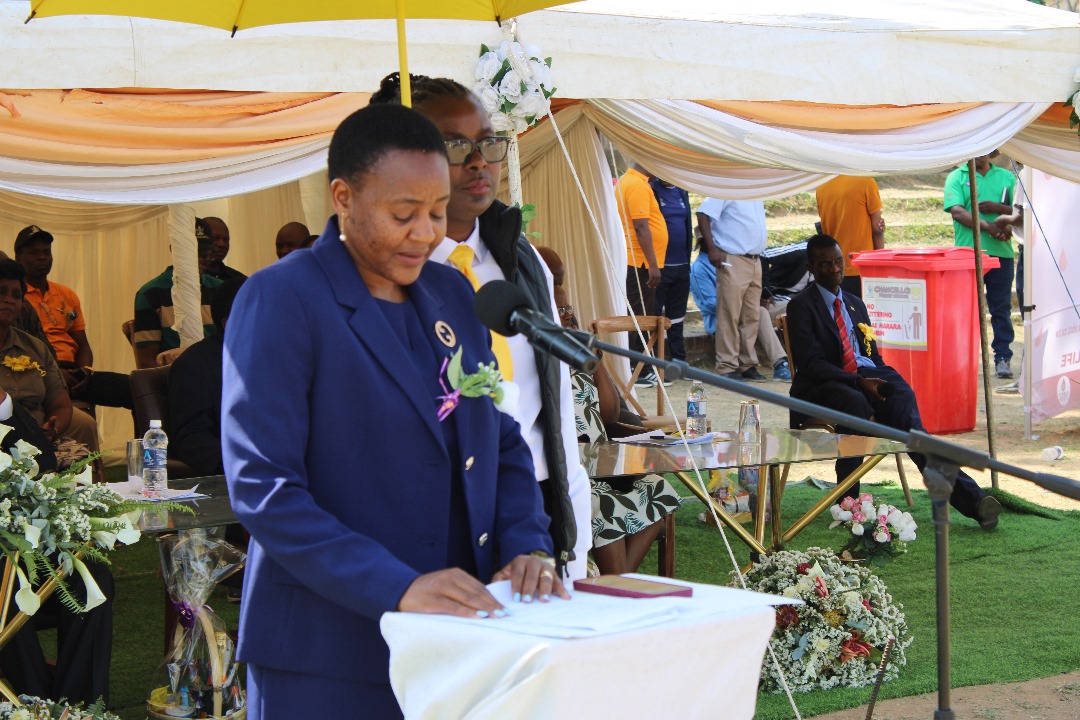Zimbabwe Celebrates World Literacy Day 2024 with a Focus on Multilingual Education
In a vibrant celebration of literacy and cultural diversity, the Ministry of Primary and Secondary Education marked World Literacy Day 2024 at Townsend High School in Bulawayo. The event, held under the theme “Promoting Multilingual Education: Literacy for Mutual Understanding and Peace,” brought together representatives from all ten provinces to showcase innovative, culturally rich displays of language and literacy. The displays featured poetry, learner-created literature, storytelling, dance, and music, including performances in sign language.
Delivering the keynote address, Minister of State for Provincial Affairs and Devolution, Hon. Judith Ncube, who was the Guest of Honour, underscored the importance of literacy as a means for fostering mutual understanding, empowerment, and lasting peace. “Literacy is not merely the ability to read and write but a tool for empowerment and mutual understanding,” she said. Hon. Ncube emphasised that literacy, when nurtured within a multilingual context, “further enhances individuals’ capacity to engage with a broader range of perspectives and to communicate more effectively with others. This contributes to a just and peaceful society where everyone’s voice can be heard and respected.”
The Minister highlighted Zimbabwe’s linguistic diversity, noting that the country has 16 official languages recognised in its constitution. “We are a nation that has the potential to harness this diversity to promote unity and cooperation,” she stated, stressing the government’s commitment to inclusive, equitable, and quality education. Hon. Ncube also praised the Ministry’s ongoing efforts to strengthen literacy through initiatives like the Heritage-Based Curriculum (HBC), which she described as a critical component in promoting multilingual education.
Among the literacy-promoting measures she discussed, Hon. Ncube emphasised government initiatives to include indigenous languages in the Infant School Module and the recent introduction of the Zimbabwe National Sign Language syllabus.
“Our commitment to promoting multilingual education is not just about preserving cultural heritage; it is also about preparing our pupils for the global stage,” she said, underscoring the role of multilingual education in equipping learners with the skills needed to thrive in a competitive, interconnected world.
The day’s celebrations showcased Zimbabwe’s commitment to bridging linguistic diversity and literacy. As Hon. Ncube concluded, “Let us strive to create an education system that values and promotes teaching and learning in different languages, and that equips pupils with the skills they need to contribute to the development of our nation.”
The Ministry congratulates all educators, parents, pupils, and community leaders for their dedication to promoting literacy and invites them to continue working toward a peaceful and prosperous Zimbabwe through education.
Among the literacy-promoting measures she discussed, Hon. Ncube emphasised government initiatives to include indigenous languages in the Infant School Module and the recent introduction of the Zimbabwe National Sign Language syllabus.
“Our commitment to promoting multilingual education is not just about preserving cultural heritage; it is also about preparing our pupils for the global stage,” she said, underscoring the role of multilingual education in equipping learners with the skills needed to thrive in a competitive, interconnected world.
The day’s celebrations showcased Zimbabwe’s commitment to bridging linguistic diversity and literacy. As Hon. Ncube concluded, “Let us strive to create an education system that values and promotes teaching and learning in different languages, and that equips pupils with the skills they need to contribute to the development of our nation.”
Zimbabwe Celebrates World Literacy Day 2024 with a Focus on Multilingual Education

